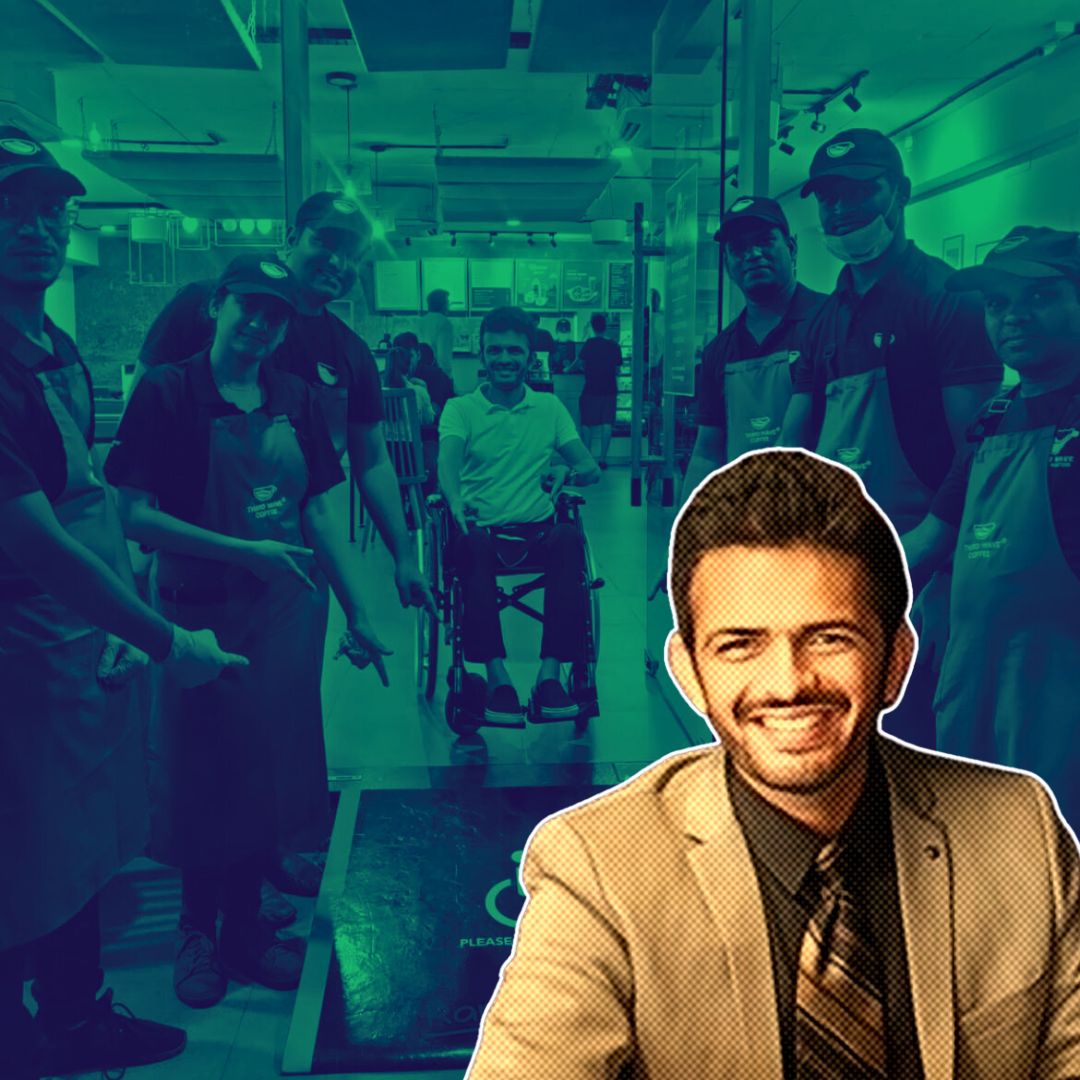RampMyCity (RMC), founded by Bengaluru-based entrepreneur Prateek Khandelwal in 2018, is revolutionising accessibility in India by transforming over 500 public spaces into inclusive environments for Persons with Disabilities (PwDs) and the elderly.
The initiative aligns with government campaigns like the Accessible India Campaign and has expanded to cities such as Mumbai, Bengaluru, and Goa. RMC’s efforts include installing ramps, creating accessible restrooms, and conducting training sessions to foster inclusivity. Founder Prateek Khandelwal’s personal journey of resilience after a spinal cord injury in 2014 inspired this impactful movement.
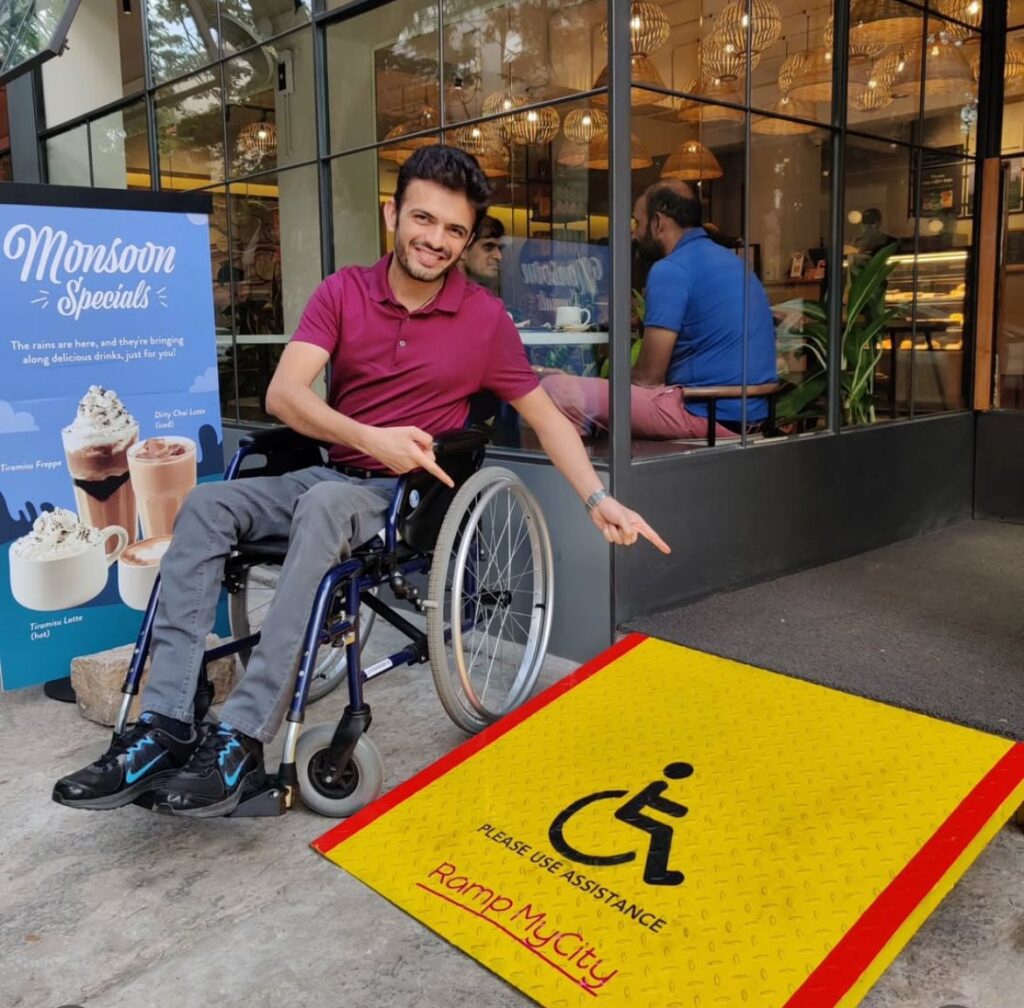
Founder’s Journey: From Tragedy to Triumph
Prateek Khandelwal’s life changed dramatically in 2014 after a spinal cord injury left him paralysed and wheelchair-bound. Confronted with the glaring inaccessibility of public spaces, he realised that even basic activities like visiting restaurants or pursuing a career were daunting due to physical barriers.
Determined to turn his adversity into action, Khandelwal launched RampMyCity in 2018 with the vision of creating a barrier-free India.
“I wanted to ensure that others like me could lead fulfilling lives without being restricted by inaccessible infrastructure,” Khandelwal shared. His startup began with simple yet effective solutions like installing metal ramps at high-traffic locations such as restaurants, schools, government buildings, and parks.
Over time, RMC expanded its scope to include accessible restrooms and training programmes for building owners and staff on accommodating PwDs.
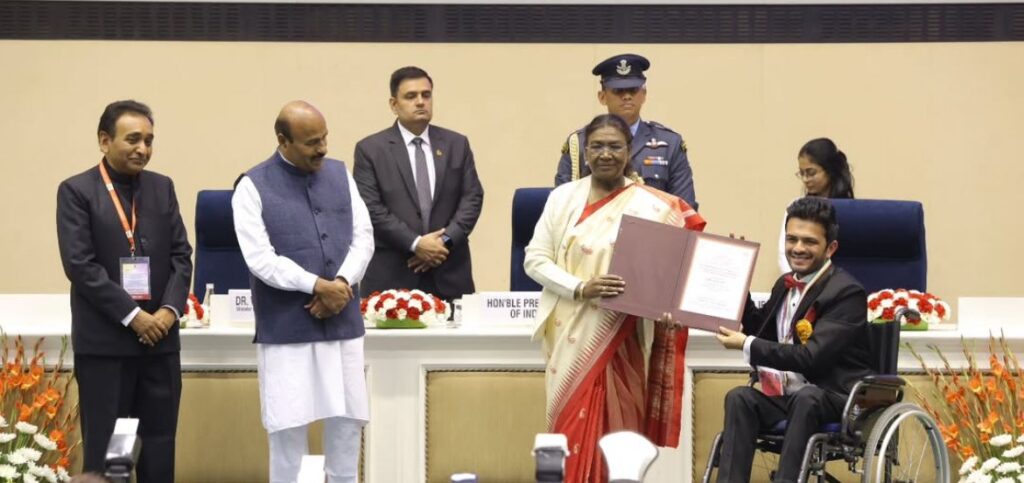
Transforming Public Spaces Across India
RampMyCity has spearheaded accessibility projects in over 500 locations across five cities, including Bengaluru, Mumbai, and Goa. In Bengaluru, iconic streets like Church Street and DVG Road have been revamped to become fully accessible.
Similarly, in Mumbai, RMC has installed ramps at 15 police stations and 25 restaurants, enabling PwDs to enjoy equal access to public spaces. The startup’s efforts extend beyond physical modifications; it also conducts workshops to educate building owners on the economic benefits of inclusivity.
“Diversity adds value to your brand,” Khandelwal often emphasises during these sessions. By fostering awareness and changing mindsets, RMC ensures that accessibility becomes a shared responsibility.
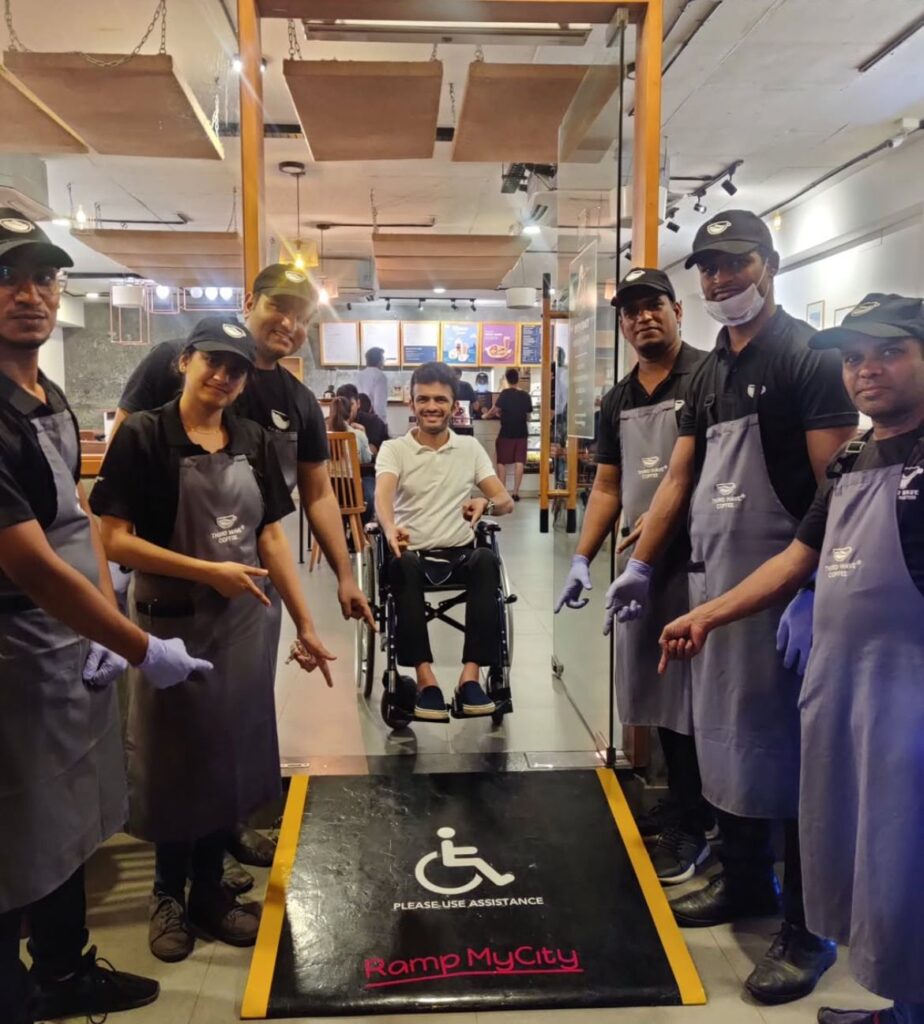
Government Support and Legislative Gaps
RampMyCity’s mission aligns closely with government initiatives like the Accessible India Campaign (2015) and the Rights of Persons with Disabilities Act (2016). These policies aim to create an inclusive society by mandating accessible infrastructure across public spaces. However, Khandelwal points out that enforcement remains a challenge. “India’s accessibility laws are often idealistic but poorly implemented,” he remarked.
Despite these systemic gaps, RMC has made significant strides by collaborating with local governments and communities. For instance, its partnership with Mumbai Police has facilitated accessibility improvements at police stations, enhancing public safety for PwDs.
Impact on Communities and Businesses
The impact of RampMyCity’s initiatives is evident in the lives it has touched. Residents like Anjali Rao from Bengaluru expressed gratitude for the newfound independence that accessible infrastructure provides. “I can now visit my favourite café without worrying about getting inside,” she said.
Business owners have also reported positive outcomes. Rajesh Kumar, a restaurant owner on Church Street, noted an increase in customer footfall after installing ramps. “It’s not just good for business; it feels good to contribute to the community,” he added.
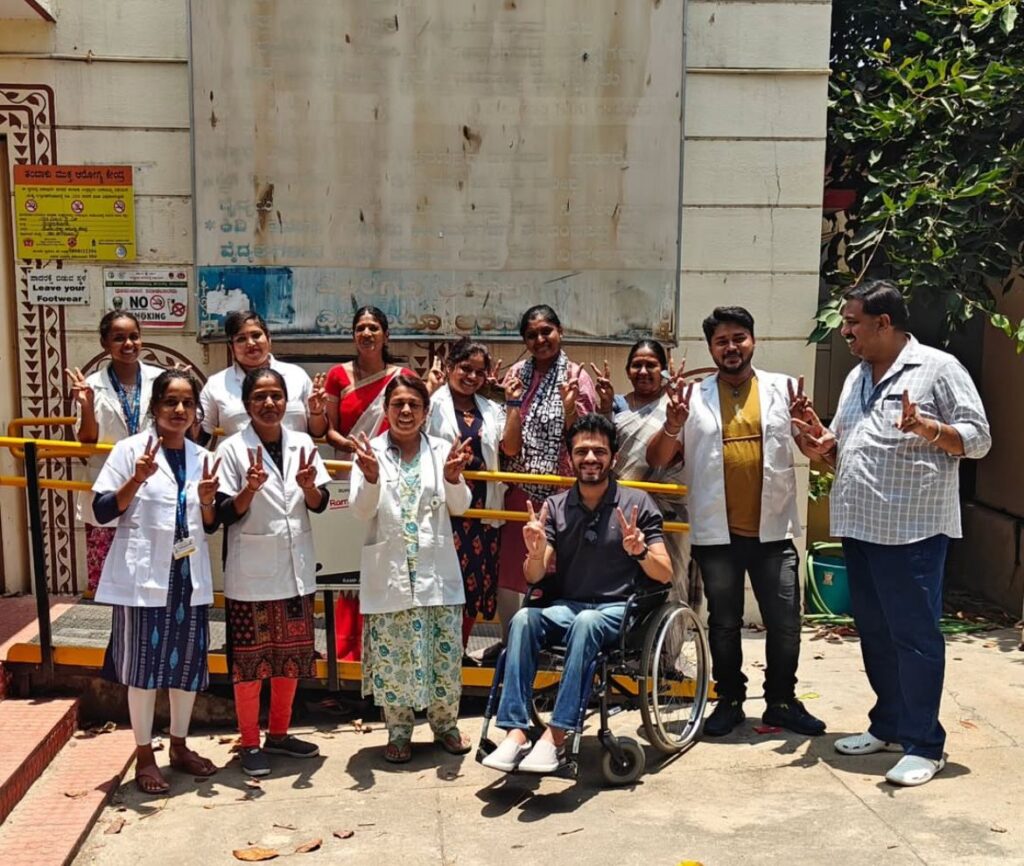
The Logical Indian’s Perspective
RampMyCity exemplifies how individual resilience can drive collective change. By addressing both physical barriers and societal attitudes, RMC fosters empathy and inclusivity while empowering PwDs to participate fully in social and economic life.
As India progresses toward becoming an inclusive nation, initiatives like RMC serve as reminders of what can be achieved through determination and collaboration.
The journey toward a barrier-free society requires collective effort from all stakeholders—government bodies, private enterprises, and citizens alike. What steps can we take individually or as a community to support such transformative efforts? Share your thoughts below and join us in building an inclusive India for everyone.


